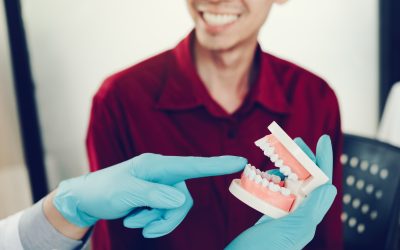Tooth roots can be damaged in different ways. The most common form is deep tooth decay, where bacteria penetrates to the tooth nerve and damages it. This danger exists even with old, leaky fillings.
Also, periodontitis, which exposes the necks of individual teeth and provides a target for bacteria, may be responsible for a person’s tooth root inflammation. Further, accidents in which the tooth breaks off or cracks may be due to this. Prevention is the number-one way to eliminate the need for root canals and other types of Dentistry in Omaha NE.
The procedure
All root canals are cleaned with fine, highly flexible instruments and then rendered germ-free. Dentists use modern, mechanical processing with flexible nickel-titanium files. These instruments adapt to any root curvature and twist.
This sophisticated technology ensures maximum reliability and accuracy. Also, the root canals are extended very gently. The highest level of care is guaranteed with the proper use of necessary instruments in Dentistry in Omaha NE.
This flexibility eliminates dental losses and decreases the risk of breakage greatly. During cleaning, the canal system is repeatedly rinsed and disinfected with antibacterial solutions so that, even in the finer canals that branch off from the root canal, no bacteria will remain.
Length of root canals
The length determination of a root canal is another essential criterion for the root canal itself and for the success of the treatment. For safety reasons, the dentist will take a look at the root canals multiple times. The best possible data is obtained through a combination of electrometric methods with digital X-ray measurement technology.
For a modern root filling, a thermoplastic (warm and malleable) filling material has proven itself to be quite useful. It is so supple that it adapts well to the turns and branches of the tooth’s root system and seals it completely. This is important because no new cavities are created during a root filling.
Only then will new infections be prevented. With the sealing of the canal system and subsequent adhesive closure of future access in the tooth, the therapy is completed. The tooth’s root retains its original stability and can retain its hold in the jawbone. The renewed tooth can now be rebuilt. Call Westwood Dental for further details. Like us on Facebook.



